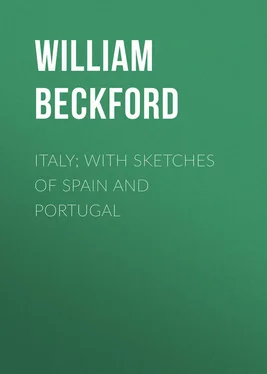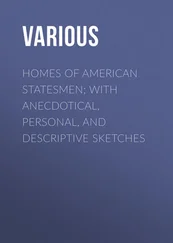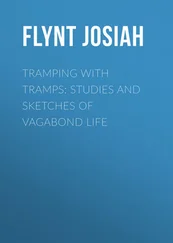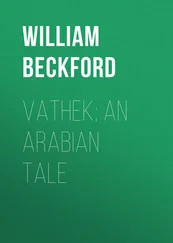William Beckford - Italy; with sketches of Spain and Portugal
Здесь есть возможность читать онлайн «William Beckford - Italy; with sketches of Spain and Portugal» — ознакомительный отрывок электронной книги совершенно бесплатно, а после прочтения отрывка купить полную версию. В некоторых случаях можно слушать аудио, скачать через торрент в формате fb2 и присутствует краткое содержание. Жанр: foreign_antique, foreign_prose, Путешествия и география, на английском языке. Описание произведения, (предисловие) а так же отзывы посетителей доступны на портале библиотеки ЛибКат.
- Название:Italy; with sketches of Spain and Portugal
- Автор:
- Жанр:
- Год:неизвестен
- ISBN:нет данных
- Рейтинг книги:3 / 5. Голосов: 1
-
Избранное:Добавить в избранное
- Отзывы:
-
Ваша оценка:
- 60
- 1
- 2
- 3
- 4
- 5
Italy; with sketches of Spain and Portugal: краткое содержание, описание и аннотация
Предлагаем к чтению аннотацию, описание, краткое содержание или предисловие (зависит от того, что написал сам автор книги «Italy; with sketches of Spain and Portugal»). Если вы не нашли необходимую информацию о книге — напишите в комментариях, мы постараемся отыскать её.
Italy; with sketches of Spain and Portugal — читать онлайн ознакомительный отрывок
Ниже представлен текст книги, разбитый по страницам. Система сохранения места последней прочитанной страницы, позволяет с удобством читать онлайн бесплатно книгу «Italy; with sketches of Spain and Portugal», без необходимости каждый раз заново искать на чём Вы остановились. Поставьте закладку, и сможете в любой момент перейти на страницу, на которой закончили чтение.
Интервал:
Закладка:
But perhaps I am too bold in my assertion; for I have no authority to mention any attempts to purify these noxious pools. Who knows but their odour is congenial to a Dutch constitution? One should be inclined to this supposition by the numerous banquetting-rooms and pleasure-houses which hang directly above their surface, and seem calculated on purpose to enjoy them. If frogs were not excluded from the magistrature of their country (and I cannot but think it a little hard that they are), one should not wonder at this choice. Such burgomasters might erect their pavilions in such situations; but, after all, I am not greatly surprised at the fishiness of their site, since very slight authority would persuade me there was a period when Holland was all water, and the ancestors of the present inhabitants fish. A certain oysterishness of eye and flabbiness of complexion, are almost proofs sufficient of this aquatic descent: and pray tell me for what purpose are such galligaskins as the Dutch burthen themselves with contrived, but to tuck up a flouncing tail, and thus cloak the deformity of a dolphinlike termination?
Having done penance for some time in the damp alleys which line the borders of these lazy waters, I was led through corkscrew sand-walks to a vast flat, sparingly scattered over with vegetation. There was no temptation to puzzle myself in such a labyrinth; so taking advantage of the lateness of the hour, and muttering a few complimentary promises of returning at the first opportunity, I escaped the ennui of this endless scrubbery, and got home, with the determination of being wiser and less curious if ever my stars should bring me again to the Hague.
LETTER IV
Leave the Hague. – Leyden. – Wood near Haerlem. – Waddling fishermen. – Enter the town. – The great fair. – Riot and uproar. – Confusion of tongues. – Mine hostess.
Haerlem, July 1st, 1780.THE sky was clear and blue when we left the Hague, and we travelled along a shady road for about an hour, when down sunk the carriage into a sand-bed, and we were dragged along so slowly that I fell into a profound repose. How long it lasted is not material; but when I awoke, we were rumbling through Leyden. There is no need to write a syllable in honour of this illustrious city: its praises have already been sung and said by fifty professors, who have declaimed in its university, and smoked in its gardens. Let us get out of it as fast as we can, and breathe the cool air of the wood near Haerlem.
Here we arrived just as day declined: hay was making in the fields, and perfumed the country far and wide with its reviving fragrance. I promised myself a sentimental saunter in the groves, took up Gesner, and began to have pretty pastoral ideas as I walked forward; but instead of nymphs dispersed over the meadows, I met a gang of waddling fishermen. Letting fall the garlands I had wreathed for the shepherdesses, I jumped into the carriage, and was driven off to the town. Every avenue to it swarmed with people, whose bustle and agitation seemed to announce that something extraordinary was going forward. Upon inquiry I found it was the great fair at Haerlem; and before we had advanced much farther, our carriage was surrounded by idlers and gingerbread-eaters of all denominations. Passing the gate, we came to a cluster of little illuminated booths beneath a grove, glittering with toys and looking-glasses. It was not without difficulty that we reached our inn, and then the plague was to procure chambers; at last we were accommodated, and the first moment I could call my own has been dedicated to you.
You will not be surprised at the nonsense I have written, since I tell you the scene of the riot and uproar from whence it bears date. At this very moment the confused murmur of voices and music stops all regular proceedings: old women and children tattling; apes, bears, and show-boxes under the windows; French rattling, English swearing, outrageous Italians, frisking minstrels; tambours de basque at every corner; myself distracted; a confounded squabble of cooks and haranguing German couriers just arrived, their masters following open-mouthed, nothing to eat, the steam of ham and flesh-pots all the while provoking their appetite; squeaking chamber-maids in the galleries above, and mine hostess below, half inclined to receive the golden solicitations of certain beauties for admittance, but positively refusing them the moment some creditable personage appears; eleven o’clock strikes; half the lights in the fair are extinguished; scruples grow faint; and mammon gains the victory.
LETTER V
Amsterdam. – The road to Utrecht. – Country-houses and gardens. – Neat enclosures. – Comfortable parties. – Ladies and Lapdogs. – Arrival at Utrecht. – Moravian establishment – The woods. – Shops. – Celestial love. – Musical Sempstresses. – Return to Utrecht.
Utrecht, 2d July, 1780.WELL, thank Heaven! Amsterdam is behind us; how I got thither signifies not one farthing; it was all along a canal, as usual. The weather was hot enough to broil an inhabitant of Bengal; and the odours, exhaling from every quarter, sufficiently powerful to regale the nose of a Hottentot.
Under these pungent circumstances we entered the great city. The Stadt-huys being the only cool place it contained, I repaired thither as fast as the heat permitted, and walked in a lofty marble hall, magnificently coved, till the dinner was ready at the inn. That despatched, we set off for Utrecht. Both sides of the way are lined with the country-houses and gardens of opulent citizens, as fine as gilt statues and clipped hedges can make them. Their number is quite astonishing: from Amsterdam to Utrecht, full thirty miles, we beheld no other objects than endless avenues and stiff parterres scrawled and flourished in patterns like the embroidery of an old maid’s work-bag. Notwithstanding this formal taste, I could not help admiring the neatness and arrangement of every inclosure, enlivened by a profusion of flowers, and decked with arbours, beneath which a vast number of consequential personages were solacing themselves after the heat of the day. Each lusthuys we passed contained some comfortable party dozing over their pipes, or angling in the muddy fish-ponds below. Scarce an avenue but swarmed with female josses; little squat pug-dogs waddling at their sides, the attributes, I suppose, of these fair divinities.
But let us leave them to loiter thus amiably in their Elysian groves, and arrive at Utrecht; which, as nothing very remarkable claimed my attention, I hastily quitted to visit a Moravian establishment at Ziest, in its neighbourhood. The chapel, a large house, late the habitation of Count Zinzendorf, and a range of apartments filled with the holy fraternity, are totally wrapped in dark groves, overgrown with weeds, amongst which some damsels were straggling, under the immediate protection of their pious brethren.
Traversing the woods, we found ourselves in a large court, built round with brick edifices, the grass-plats in a deplorable way, and one ragged goat, their only inhabitant, on a little expiatory scheme, perhaps, for the failings of the fraternity. I left this poor animal to ruminate in solitude, and followed my guide into a series of shops furnished with gew-gaws and trinkets said to be manufactured by the female part of the society. Much cannot be boasted of their handy-works: I expressed a wish to see some of these industrious fair ones; but, upon receiving no answer, found this was a subject of which there was no discourse.
Consoling myself as well as I was able, I put myself under the guidance of another slovenly disciple, who showed me the chapel, and harangued very pathetically upon celestial love. In my way thither, I caught a glimpse of some pretty sempstresses, warbling melodious hymns as they sat needling and thimbling at their windows above. I had a great inclination to approach this busy group, but the roll of a brother’s eye corrected me.
Читать дальшеИнтервал:
Закладка:
Похожие книги на «Italy; with sketches of Spain and Portugal»
Представляем Вашему вниманию похожие книги на «Italy; with sketches of Spain and Portugal» списком для выбора. Мы отобрали схожую по названию и смыслу литературу в надежде предоставить читателям больше вариантов отыскать новые, интересные, ещё непрочитанные произведения.
Обсуждение, отзывы о книге «Italy; with sketches of Spain and Portugal» и просто собственные мнения читателей. Оставьте ваши комментарии, напишите, что Вы думаете о произведении, его смысле или главных героях. Укажите что конкретно понравилось, а что нет, и почему Вы так считаете.












